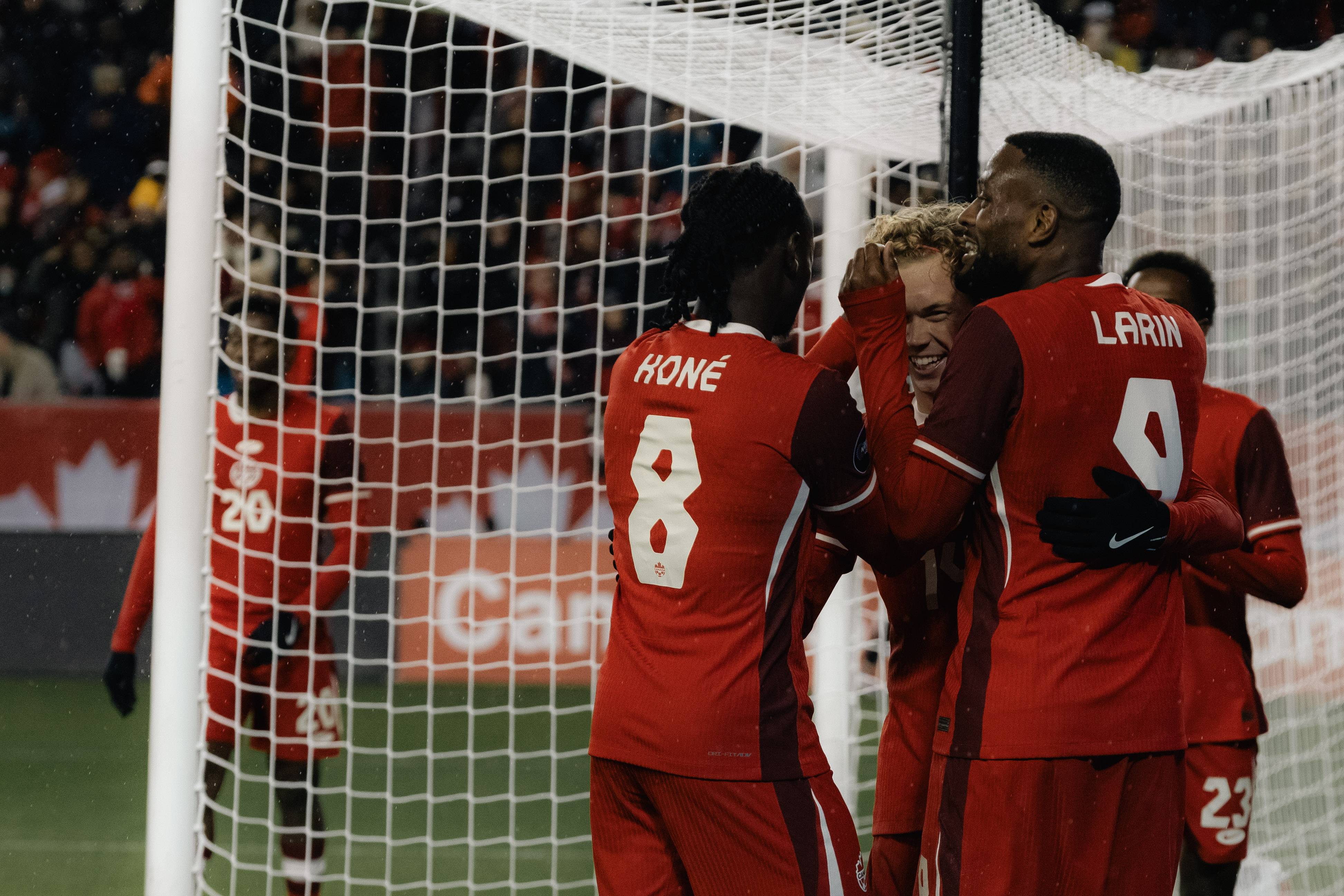For the second time in 39 years, Canada has defeated the United States in back-to-back matches.
On March 23, Canada’s men’s national soccer team claimed a 2-1 victory over the U.S. in the third-place match of the Concacaf Nations League, creating a symbolic moment in what has traditionally been a one-sided rivalry with the U.S. a regular victor over its neighbour to the north. While the game wasn’t for a title, it still represented the Canadian team finally achieving a high level of play.
The win wasn’t a fluke. Canada now holds a 2-0-1 record against the U.S. over their last competitive meetings, the first such streak since 1985. It’s a notable shift in the balance of power in North American soccer, a region long dominated by the U.S. and Mexico.
Sunday’s match saw Canadian forward Jonathan David score the winner in the 59th minute, capping off a performance that earned him man of the match. Marking his 32nd international goal — the most in the Canadian men’s national team history. Forward Tani Oluwaseyi opened the scoring in the 27th minute, starting the game off with high energy.
The numbers point to a trend, not a one-off. Canada finished the 2022 World Cup qualifying cycle atop the Concacaf table with 28 points — tied with Mexico as the Canadians held the tie breaker to finish first and three ahead of the U.S. — a feat not accomplished by the Canadians since 1997. In the past three years, Canada’s FIFA ranking has jumped from 73rd (January 2021) to 31st (March 2025), surpassing long-established regional rivals like Costa Rica and Honduras.
Tactically, Canada has evolved into a high-pressing, direct attacking team with pace on the wings and a midfield that no longer struggles to keep possession. Canadian players like Alphonso Davies (Bayern Munich), Jonathan David (Lille) and Stephen Eustáquio (Porto) now play for top-tier European clubs — a level of experience and exposure Canadian players rarely had even a decade ago.
But this Nations League result matters for reasons beyond mere bragging rights. It may be the first real indicator that Canada is ready to take its place alongside the U.S. and Mexico as a regional equal. And with all three nations set to co-host the 2026 FIFA World Cup, the timing couldn’t be more significant.
For the U.S., the loss continues a frustrating trend under head coach Mauricio Pochettino, whose team failed to reach the Nations League final despite having the home advantage. Their defensive line was outpaced by Canada’s transitions and their midfield lacked rhythm — two issues that have plagued them since their World Cup round of 16 exit in 2022. Pochettino’s record now stands at 0-1 against Canada, a stat that will fuel growing skepticism from fans and media alike.
What comes next is crucial. The Canadian team look to build on this momentum in the upcoming World Cup 2026, where they face elite competition for the first time in over a decade. Canada will enter its own World Cup as a genuine contender to advance — not just participate.

